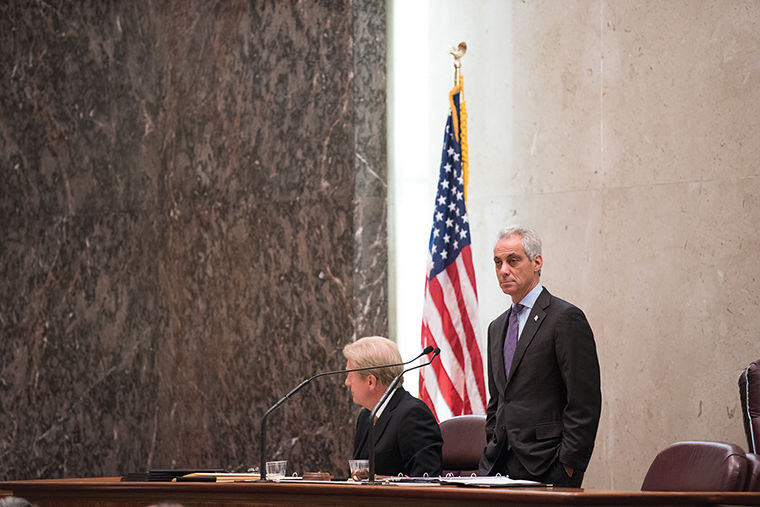Experts say Emanuel’s housing funds fall short
Mayor Rahm Emanuel proposed a plan to develop vacant homes in the city on Jan. 9 press release, which City Council will later review.
January 23, 2017
Mayor Rahm Emanuel announced a pilot program to develop vacant homes in Chicago neighborhoods that “need investment and jobs” and plans to invest $2 million in designated communities renovating 50 single-family or two-flat homes, according to a Jan. 9 press release from the mayor’s office.
“By working with local contractors and developers, the pilot initiative will help support community improvement and homeownership, while driving neighborhood economic development,” Emanuel said in the program’s press release.
However, the plan may not adequately combat the city’s housing issues on its own, according to local experts.
The specific neighborhoods that would benefit from the program have not been identified, and the logistics of the program need to be vetted by City Council, according to Ald. Pat Dowell (3rd Ward).
Charles Hoch, an urban planning and policy professor at University of Illinois at Chicago, said in a Jan. 18 emailed statement that this plan would cost three or four times more money than the mayor has proposed to make an impact in any of Chicago’s West Side or South Side neighborhoods.
“This idea is great, but the funding is tiny,” Hoch said. “If the fund had $200 million, then it would be able to make meaningful improvements in a few neighborhoods.”
Eithne McMenamin, associate director of Policy for Chicago Coalition for the Homeless—a nonprofit organization that advocates for public policies to end homelessness—said the city had decided to set aside $35 million in 2013 for rehabbing vacant properties through tax increment financing but has since “fallen short.”
The five-year plan has passed its halfway point, and the city has spent about $7 million of the funds since 2014, she said. However, she acknowledged that the $2 million is a strong start if it is directed toward low-income housing.
“We really have to dig down and commit in a more substantive way to creating housing for people at the bottom of the income spectrum,” McMenamin said.
Betancur, who specializes in economic and community development at UIC, said in a Jan. 19 emailed statement that, when moving forward with the program, the city should stay away from rehabbing houses in areas undergoing gentrification because all communities across the city deserve a chance for rehabilitation.
“Although programs exist to help low-income homeowners with particular problems, they are rather limited,” Betancur said. “In Chicago, we have basically a form of homeownership that can be very onerous on people of lesser means.”
Dowell said the pilot program will be discussed in future City Council meetings, and Emanuel has identified his priority for the property tax rebate money. However, other aldermen have a specific priority to address gun violence in the city, she added.
“All of these priorities have to be balanced and the mayor is putting out his priority,” Dowell said.
While Emanuel’s plan is not finalized, Betancur said in the statement that if the pilot program is approved, City Council should discuss why these areas were abandoned and be selective in choosing participants to avoid a repeating pattern in those neighborhoods in the future.
“At the end of the day, any program has to guarantee that someone is going to occupy that house or building,” he said. “Hopefully, a homeowner has the ability to run the property, keep it up to code and have the ability to pay the bills and the maintenance.”








